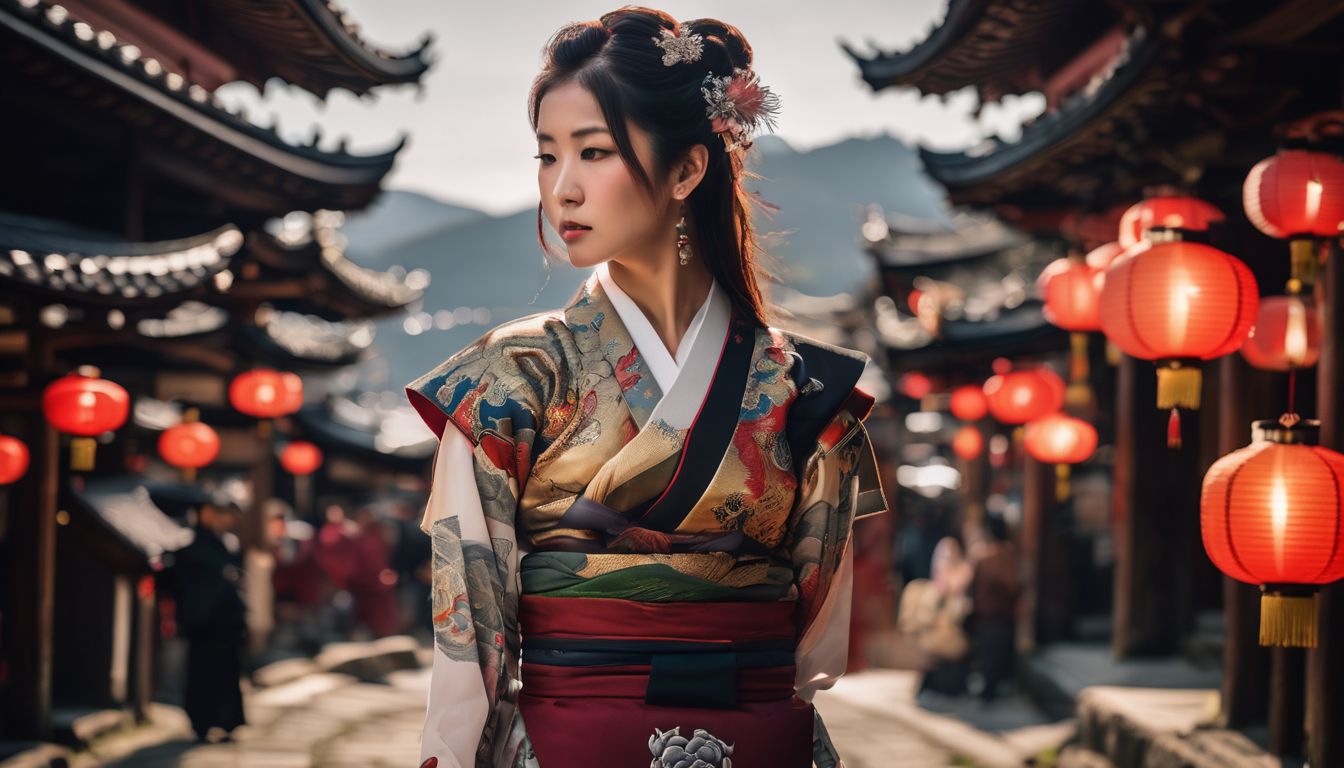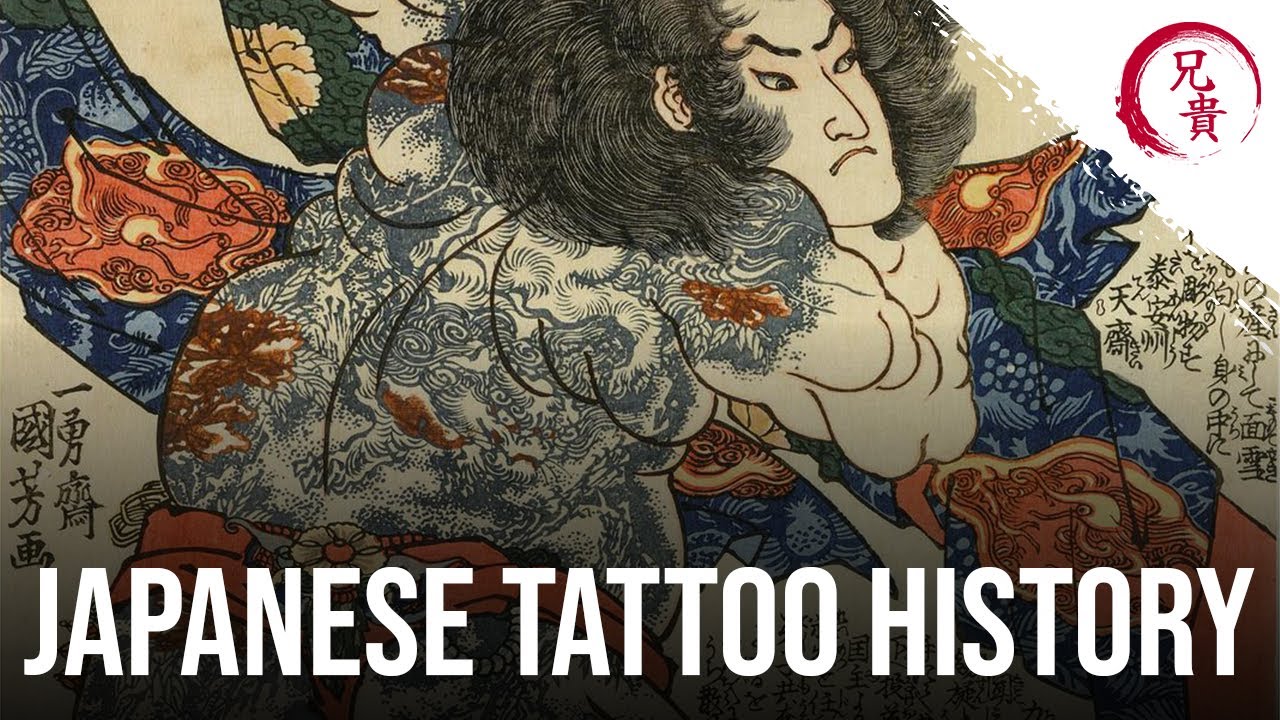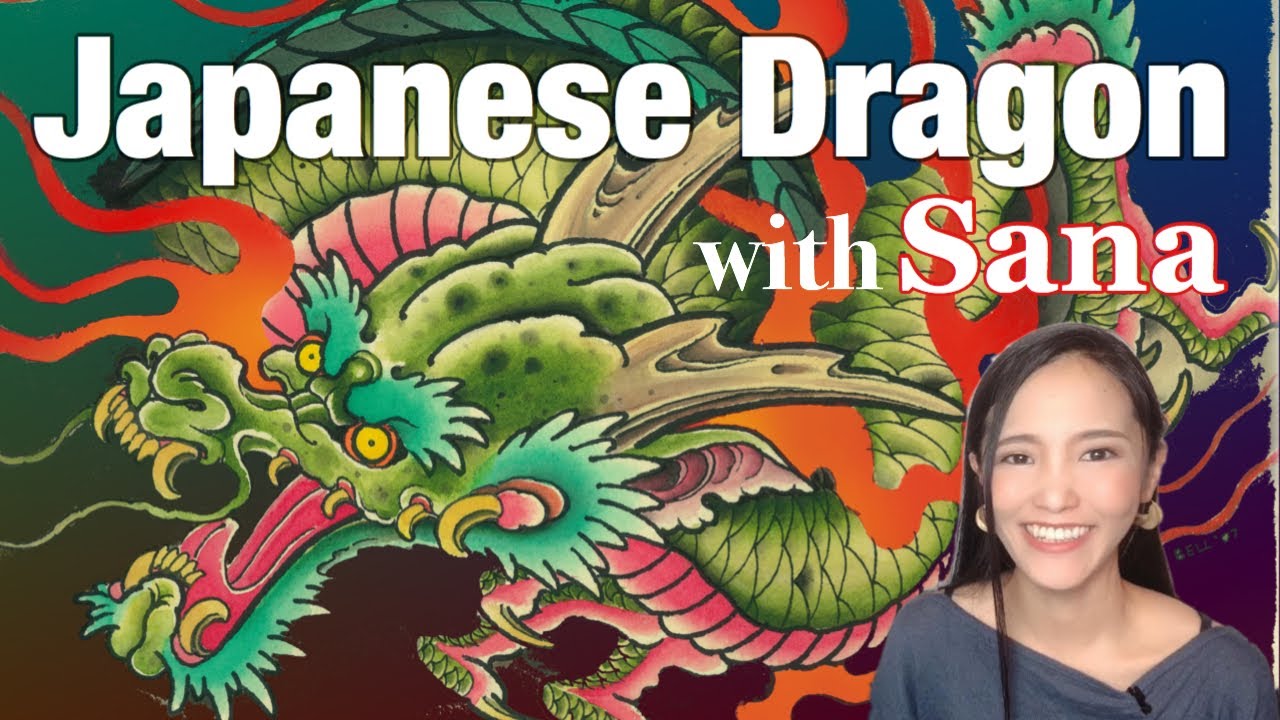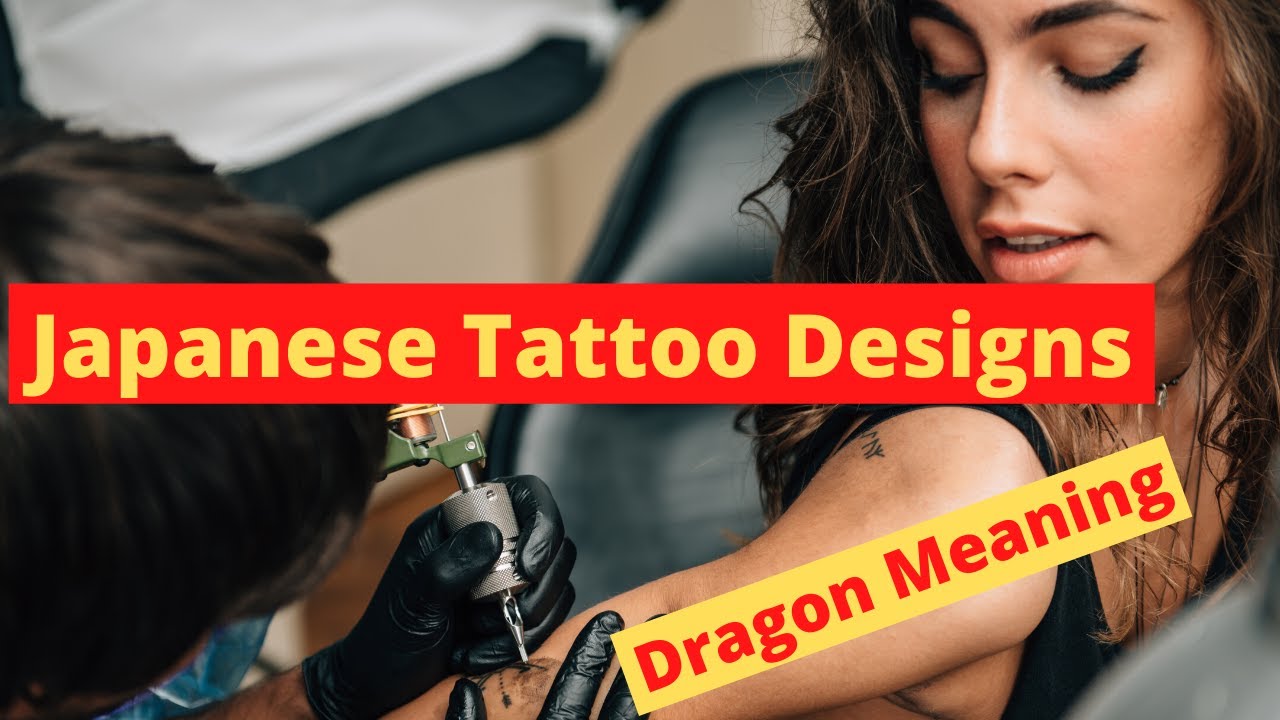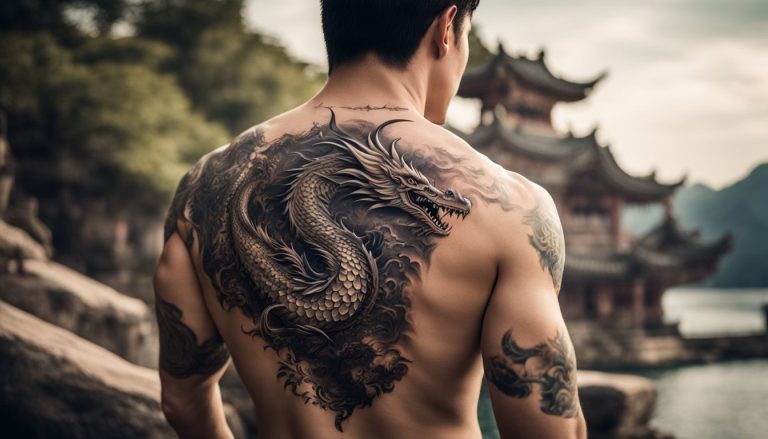Exploring the Symbolism and Meaning Behind Japanese Dragon Tattoos
Create your own unique tattoos and art for your home
Choosing the perfect tattoo can be daunting, especially when delving into culturally rich symbols like Japanese dragon tattoos. These intricate designs are more than just art; they carry deep historical and mythological significance.
This article will unveil the layers of meaning behind these majestic creatures to guide your tattoo choice. Get ready to discover a symbol that resonates with you!
Key Takeaways
- Japanese dragon tattoos are rich in history and cultural significance, rooted in ancient mythology where they symbolize power, strength, and good luck.
- These tattoos also carry meanings of protection and guardianship, reflecting their role as benevolent forces that offer wisdom and safety.
- A variety of designs cater to individual preferences, including full sleeve and forearm tattoos for bold expression or small, simple designs for subtle symbolism.
- Cultural influences from China have introduced various types of dragons into Japanese tattoo art, each with its own specific meaning related to authority, prosperity or spiritual guidance.
- Modern interpretations of these tattoos blend traditional elements with contemporary styles and personal meanings such as resilience and inner strength.
The History of Japanese Dragon Tattoos
Japanese dragon tattoos hold deep traditional symbolism and cultural significance in Japanese history, with roots dating back to ancient mythology and folklore. Over time, the art of Japanese dragon tattoo designs has evolved in style, technique, and application.
Traditional symbolism
Dragons in Japanese tradition symbolize supreme power, strength, and good luck. They’re often associated with water—rivers, lakes, seas—and revered as guardians of these life-giving elements.
In contrast to Western dragons that are usually considered malevolent creatures, their Japanese counterparts are seen as benevolent forces that provide wisdom and protection.
Tattoos depicting these mythical creatures carry deep meaning; they embody the essence of might and benevolence. This dragon art is not just skin-deep imagery but a powerful connection to the age-old beliefs woven into the fabric of Japanese culture.
Wearers often choose them to represent personal strength or an overcoming of difficult life challenges, reflecting the dragon’s resilience and majesty.
Cultural significance
Transitioning from the rich history and traditional symbolism of Japanese dragon tattoos, it is essential to understand their cultural significance. In Japanese culture, the dragon holds a revered place and signifies strength, wisdom, and protection.
The tattoo is seen as both a guardian and benefactor of humanity, embodying positive attributes such as power, good luck, peace, wisdom, and strength. These tattoos are not merely decorative; they carry deep cultural meaning and represent an important part of Japan’s folklore and symbolic heritage.
The cultural significance of Japanese dragon tattoos extends beyond physical art; it reflects the values deeply rooted in its mythology and art forms as well. Embodying traditional beliefs about bravery and guardianship to modern interpretations that embrace individual freedom – these tattoos encapsulate an enduring narrative about heroism in Eastern society.
Evolution of styles
Transitioning from the rich cultural significance of Japanese dragon tattoos, the evolution of styles has seen a dynamic shift over time. From traditional designs rooted in Japanese mythology and art to modern interpretations influenced by global tattoo trends, the styles have evolved to cater to diverse preferences.
With advancements in tattoo techniques and technology, contemporary Japanese dragon tattoos now feature intricate details, vibrant colors, and innovative compositions that reflect individual creativity while staying true to the revered symbolism.
Influenced by both historical craftsmanship and contemporary innovation, Japanese dragon tattoos continue to evolve as a timeless symbol of strength and wisdom. The fusion of traditional elements with modern artistic expression has resulted in an array of captivating styles that resonate with individuals seeking a powerful yet aesthetically striking representation through their body art.
Popular Designs for Japanese Dragon Tattoos
From elaborate full sleeve designs to smaller, simpler forearm tattoos, the popularity of Japanese dragon tattoos lies in their versatility and striking visuals. These designs often showcase intricate details and bold colors, making them a popular choice for those seeking an eye-catching tattoo.
Full sleeve designs
Japanese dragon tattoos are often depicted as full sleeve designs, covering the entire arm with intricate and elaborate details. These designs allow for a dynamic portrayal of the powerful creature, incorporating elements of Japanese folklore and symbolism.
The full sleeve design provides ample space to showcase the dragon’s majestic presence, often accompanied by traditional motifs such as cherry blossoms or waves to enhance its meaning.
The size and scope of a full sleeve Japanese dragon tattoo offer an immersive experience for both the wearer and the observer, capturing the essence of strength, wisdom, and protection associated with this revered symbol.
As we explore other popular designs such as forearm tattoos and small yet impactful designs, it becomes evident that each rendition carries distinct significance in representing the enduring cultural legacy of Japanese dragon symbolism.
Forearm tattoos
Popular among both men and women, forearm tattoos are a prominent choice for showcasing Japanese dragon designs. These tattoos often feature intricate details that highlight the strength and power associated with the dragon symbol.
With cultural significance deeply ingrained in Japanese mythology, forearm tattoos serve as an expression of courage and wisdom, representing protection and guardianship. The sleek and elongated shape of the forearm provides an ideal canvas to display these dynamic designs, making it a popular location for individuals seeking to embody the symbolism behind Japanese dragon tattoos.
Moving on from the captivating allure of forearm tattoos, let’s delve into the appeal of small and simple designs in Japanese dragon tattoo artistry.
Small and simple designs
Japanese dragon tattoos don’t always have to be large and elaborate. Small and simple designs are also popular among tattoo enthusiasts. These small tattoos may feature a minimalist representation of the Japanese dragon, often focusing on specific elements such as the head, claws, or tail.
The simplicity of these designs allows for more flexibility in placement, making them suitable for areas like the wrist, ankle, or behind the ear.
Some people opt for smaller Japanese dragon tattoos to convey subtler meanings without the commitment of a larger piece. Despite their size, these designs still carry significant symbolism and cultural significance.
Many individuals choose small and simple designs to represent personal traits like strength, wisdom, or protection in a discreet yet meaningful way.
The Meaning Behind Japanese Dragon Tattoos
Japanese dragon tattoos symbolize protection, happiness, and good luck. To learn more about the cultural significance and symbolism behind these powerful designs, keep reading!
Protection and guardianship
The Japanese dragon tattoo symbolizes protection and guardianship, reflecting its representation as a benevolent creature in Japanese culture. It is believed to protect humanity from harm and bring good fortune, making it a popular choice for those seeking symbolism related to strength and safety.
The dragon’s association with guarding against adversity and bringing prosperity adds depth to the meaning behind this traditional design.
In Japanese culture, the dragon holds significant importance as a protector and guardian figure. Its depiction in tattoos reflects this cultural significance, representing a powerful emblem of safeguarding against negative forces and providing assurance of safety.
Happiness and freedom
Japanese dragon tattoos symbolize happiness and freedom, representing a sense of joy and liberation. The intricate designs and vibrant colors depict the celebration of life and the pursuit of joy.
These tattoos are also associated with the idea of breaking free from constraints, embracing individuality, and finding contentment in one’s life journey.
The symbolism behind Japanese dragon tattoos reflects a desire for personal fulfillment and the quest for inner peace. With their rich cultural significance, these tattoos inspire a sense of optimism and empowerment, encouraging individuals to embrace their unique path toward happiness.
Good luck and prosperity
Moving from the symbolism of happiness and freedom, Japanese dragon tattoos also represent good luck and prosperity. In both Japanese and Chinese cultures, dragons are considered to bring good fortune, wealth, and success.
The dragon’s ability to control water in Eastern mythology aligns with the belief that it can bring abundant rainfall for a prosperous harvest. Furthermore, people often associate the dragon with auspiciousness due to its role as a guardian deity who wards off evil spirits.
The image of the Dragon in traditional Eastern folklore serves as a symbol of fortune and prosperity because it is believed that they have control over natural elements like rainwater — essential for agricultural abundance.
Influences and Variations
Chinese influence has played a significant role in the development of Japanese dragon tattoos, resulting in variations and different types of dragons with unique characteristics. Modern interpretations have also brought new styles and designs to this traditional art form.
Chinese influence
The influence of Chinese culture on Japanese dragon tattoos is evident in the similar depiction of dragons and their symbolic meanings. The Chinese dragon, often regarded as a symbol of power, wisdom, and good fortune, has influenced the portrayal of dragons in Japanese tattoo art.
The artistic styles used to depict dragons in both cultures showcase intricate details and bold designs, reflecting the shared appreciation for this mythical creature.
Furthermore, historical interactions between China and Japan have contributed to the exchange of cultural ideas, including the significance and interpretation of dragon symbolism. This intercultural exchange has resulted in unique variations within Japanese dragon tattoo designs that incorporate elements from Chinese mythology while maintaining distinct Japanese artistic expressions.
Different types of dragons
- Chinese influence on Japanese dragon tattoo designs can be seen through the adoption of different types of dragons from Chinese mythology.
- Imperial dragons, associated with the emperor and divine power, are a popular choice for Japanese dragon tattoos, symbolizing authority and good fortune.
- Earth dragons, linked to agriculture and fertile lands, are favored for their association with growth and prosperity.
- Celestial dragons, protectors of the gods, are depicted in Japanese dragon tattoos to signify spiritual guidance and celestial connection.
- Underworld dragons, guardians of the earth’s treasures, often inspire Japanese dragon tattoos representing protection and abundance.
Modern interpretations
Modern interpretations of Japanese dragon tattoos have evolved to incorporate contemporary styles, with a focus on vibrant colors and intricate designs. Artists often blend traditional Japanese tattoo techniques with modern influences, resulting in dynamic and visually striking pieces.
Furthermore, some individuals choose to reinterpret the symbolism behind the dragon, embracing personal meanings such as resilience, adaptation, and inner strength. As a result, modern variations of Japanese dragon tattoos continue to captivate enthusiasts seeking to fuse ancient symbolism with innovative artistic expressions.
Additionally, contemporary tattoo artists use advanced tools and techniques to create intricate details that breathe new life into this time-honored symbol. The fusion of traditional values with modern sensibilities allows for diverse representations of Japanese dragon tattoos that resonate deeply with individuals while honoring the rich cultural heritage from which they originated.
Conclusion
In conclusion, Japanese dragon tattoos hold deep symbolism and cultural significance. Their rich history and traditional meanings reflect strength, wisdom, protection, and prosperity.
These designs have evolved to encompass various interpretations while retaining their powerful representations in modern tattoo art. From full sleeves to small forearm designs, the Japanese dragon continues to be a revered symbol of ancient mythology and Eastern culture.
FAQs
1. What does a Japanese dragon tattoo symbolize?
A Japanese dragon tattoo stands for wisdom, power, and protection according to Eastern symbolism and traditional Japanese culture.
2. Can you tell me the meaning behind a Japanese dragon tattoo?
In the tradition of Japanese tattoos, the dragon often represents strength, courage, and good luck. It’s loved in mythology for its noble traits.
3. Is there special significance to where I place my Japanese dragon tattoo?
Yes! For example, having a Japanese dragon tattoo sleeve or on your arm may signify that you carry the qualities of the mythical creature with pride wherever you go.
4. Are there different styles of Japanese dragon tattoos?
Absolutely! You can choose from various options like traditional dragons which hold strong cultural ties or modern interpretations suited to forearm or small-tattoo preferences.
5. How did history influence today’s designs of Japanese Dragon Tattoos?
Japanese Dragon Tattoo designs are deeply connected to historical tales and mythological creatures from Japan’s past; they continue to inspire awe and honor these stories within their artistry.

